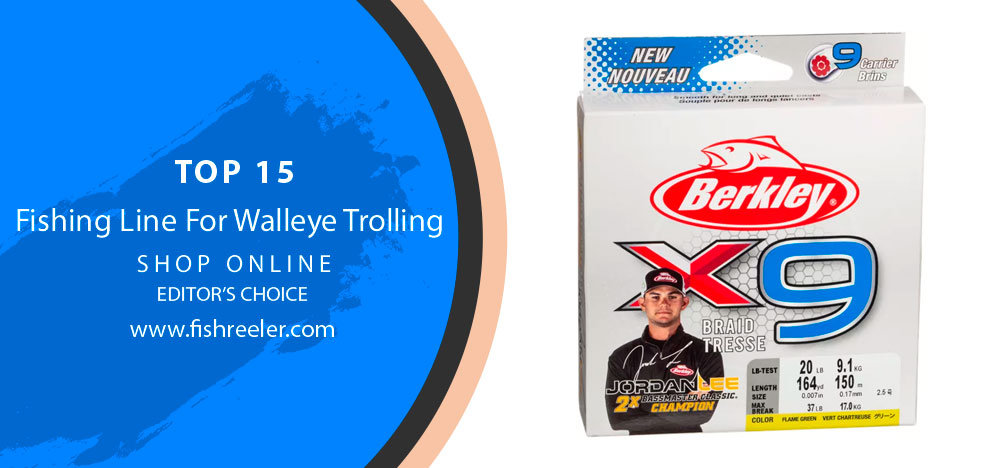
🎣 The Ultimate Guide to Walleye Trolling Lines! 🎣
Ahoy, avid anglers! Ever wondered why some people seem to have the Midas touch when it comes to walleye trolling, while others return with empty nets? The secret often lies in the type of fishing line they use.
Why Buy a Fishing Line Specifically for Walleye Trolling? 🤔
✅ Optimal Strength: 🏋️♂️ Walleye, known for their strength and agility, require a line that can withstand sudden pulls and dives. You wouldn’t want to lose that big catch due to a snapped line, would you?
✅ Stealth Mode: 🕵️♂️ Walleyes are notoriously cautious. The right trolling line remains virtually invisible underwater, ensuring you don’t spook your potential prize.
✅ Tangle-Free Experience: 🌀 With a line tailored for trolling, say goodbye to those infuriating tangles and knots that eat up your fishing time.
✅ Depth Mastery: 🌊 Dive into specific depths where walleyes roam, thanks to lines designed to sink at controlled rates.
Main Advantages: 💡
☑️ Durability: Built to last, these lines endure wear and tear, ensuring you get value for every penny spent.
☑️ Sensitivity: Feel every nibble and movement, so you can set the hook at the perfect moment!
☑️ Versatility: Adapt to varying water conditions, be it murky, choppy, or clear.
🔶 Whether you’re looking to land the catch of a lifetime, or simply make your fishing trips more productive, the right fishing line for walleye trolling is your secret weapon. Dive in, and let’s make every cast count! 🐟🌊
🎣 Fishing Lines: The Unsung Hero of Walleye Trolling 🎣
Every passionate angler knows that walleye trolling is an art. However, like every masterpiece painting, the brush makes all the difference. In the realm of walleye fishing, specialized gear is that very brush, transforming each cast into a potential masterpiece. From the swivel to the lure, every piece of equipment has its unique purpose. But there’s one element that often doesn’t get its due recognition: the fishing line.
Between the Reel and the Prize: The Line Connection 🌊🐟
Imagine you’re out on the serene water, the weather is perfect, and you feel a tug. That magical moment when a walleye bites. It’s the fishing line that communicates this very sensation from the deep unknown to the palm of your hand. Acting as a vital conduit between angler and fish, the fishing line plays a pivotal role in determining whether that walleye finds its way into your boat or eludes your grasp.
The importance of a fishing line goes beyond just acting as a connection. It needs to be strong enough to battle a fierce walleye, yet subtle enough not to alert them of its presence. The wrong choice could mean hours of fruitless waiting, while the right line can drastically enhance your success rate.
🔶 To many, it may seem like just a thread, but to the seasoned angler, it’s the silent hero of many fishing tales. So, as we delve deeper into the world of walleye trolling, let’s give a nod to the fishing line – the unsung hero that bridges dreams with reality.
🐟 Eyes on the Prize: Inside the Walleye’s World 🐟
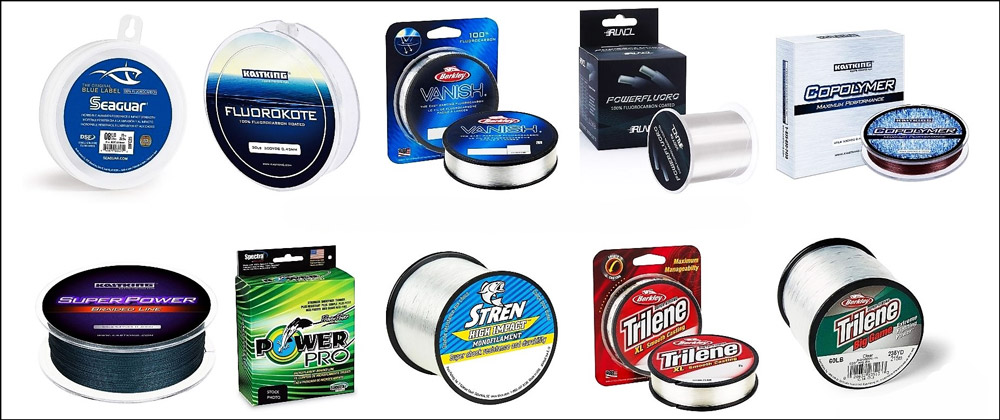
Walleyes are a fascinating species, not just for their evasive nature that challenges anglers, but also due to their unique biology and behavior which hold the key to understanding their preferences.
Biology and Behavior: Vision and Voracity
Walleyes possess a unique feature – their tapetum lucidum. This layer in their eyes reflects light, granting them superior vision in low-light conditions. This nighttime and murky water advantage makes them exceptional predators during dawn, dusk, or in cloudy waters.
Key Takeaways:
- Low-Light Lovers: Walleyes are more active during dawn and dusk due to their enhanced vision.
- Feeding Habits: Their primary diet consists of smaller fish. The movement, vibration, and visibility of your lure, greatly influenced by the fishing line you use, can make all the difference in mimicking prey.
Given this understanding of their vision and dietary preferences, choosing a fishing line that complements these behavioral patterns is crucial. A line too visible can make walleyes skittish, while one too thick may restrict lure movement, making it less enticing.
Natural Habitats: Navigating the Depths and Deception of Waters
The walleye’s natural habitat plays a pivotal role in determining the best fishing line. From clear lakes to murky rivers, each water body type presents its unique challenges.
Water Profiles:
- Clear Waters: Here, walleyes tend to go deeper during the day to avoid sunlight, meaning you’ll need a line that can reach these depths without losing strength or sensitivity.
- Murky Waters: In turbid waters, walleyes might stay relatively shallow. However, the challenge here is the line’s visibility. A more discreet line can be beneficial.
Considering these habitats, it’s evident that the choice of fishing line isn’t just about strength but also about how well it can adapt and perform under varying water conditions.
🔶 By aligning our fishing strategies with the walleye’s natural biology and habitat preferences, we set the stage for more successful and rewarding fishing adventures. Up next, we’ll dive into the various fishing lines and find out which ones rise to the challenge
Best Fishing Line For Walleye Trolling Review
Do you enjoy fishing for Walleye? If so, you’ll want to make sure you have the right fishing line for the job. Did you know that there are different types of fishing lines specifically designed for walleye trolling? In fact, using the wrong type of line can actually lead to frustration and disappointment while fishing for these prized fish. That’s why it’s important to do your research and select.
Are you looking for the best fishing line for walleye trolling? If so, you’ve come to the right place! In this blog post, we’ll share our top-rated fishing lines for walleye trolling. We’ll also provide some helpful tips on how to choose the right fishing line for your needs. So, whether you’re a beginner or a pro angler, read on to learn more about the best fishing lines for walleye trolling!
1# Daiwa J-Braid 8-Strand Braided Line
Looking for a braided line that can give you the perfect cast every time? Then you need to check out Daiwa J-Braid. This 8-strand braided line is round and smooth, making it easier to cast and more sensitive to bites. Plus, the tightly woven fibres make it stronger and more durable than other lines on the market. So whether you’re a beginner or a pro, Daiwa J-Braid is the perfect choice for all your fishing needs.
2# PowerPro Braided Spectra Fiber Microfilament Line
Check the PowerPro Braided Spectra Fiber Microfilament Line. This line is designed with Enhanced Body Technology, which delivers a compact, abrasion-resistant line with a smooth surface texture. The Spectra braid construction provides minimal stretch for an incredible feel and increased strike detection. Plus, the 500 yards of the line ensures that you won’t run out while you’re out on the water. So whether you’re an experienced fisherman or just getting started, PowerPro Braided Spectra Fiber Microfilament Line is the perfect choice for all your fishing needs.
3# SpiderWire Stealth Blue Camo Braid
Fish aren’t the only ones that like to blend in with their surroundings – now you can too! This line is designed to seamlessly merge with the blue water environment, making it harder for fish to see and avoid your bait. If you’re looking for an edge when fishing in clear or murky waters, this Stealth Blue Camo Braid is your best bet. It’s made from Dyneema, the strongest fibre in the world, so you can be confident that it will handle whatever fish you reel in. Plus, the smooth fluoropolymer Color-Lock coating ensures that your line won’t snag on itself while casting or trolling.
4# Diamond Generation 3 Diamond Braid 8X Fishing Line
Diamond Generation 3 Diamond Braid 8X Fishing Line is our most advanced line yet! This tough, affordable braided line offers incredible strength with virtually no stretch. It’s perfect for saltwater applications, including big game fishing. The bonded colour-fastness ensures consistent fade resistance through the toughest conditions, while the superior knot integrity ensures a secure connection every time. Get ready to tackle the big fish with Diamond Generation 3 Diamond Braid 8X Fishing Line!
5# PowerPro Braided Spectra Fiber Micro Filament
When you need a high-performance fishing line that can handle tough conditions, turn to PowerPro Spectra Braid. This braided line has a high strength-to-diameter ratio, making it ideal for anglers who demand the best from their gear. The Enhanced Body Technology used in manufacturing this line results in a compact and abrasion-resistant product with a smooth surface texture and minimal stretch. PowerPro Spectra Braid is also virtual memory free, so you’ll never have to deal with pesky tangles again. Made in the USA, this Fishing Line is a top choice for serious anglers.
6# Berkley Jordan Lee x9 Braid Fishing Line
Jordan Lee knows a thing or two about fishing, and he put his expertise to good use when creating the Berkley Jordan Lee x9 Braid Fishing Line. This line is made of 100% polyethene fibres that are woven into 9 strands, making it stronger and more castable than traditional 8-strand braids. It’s also more compact and smoother, with an amazing near-zero stretch that provides maximum sensitivity. Whether you’re looking to cast your line farther or simply enjoy a quieter experience in the water, the Jordan Lee x9 Braid is a perfect choice.
7# Western Filament Tuf Line XP
Looking for a tough and durable fishing line? Look no further than Western Filament Tuf Line XP. This advanced finishing process produces a line that boasts higher abrasion resistance and near-zero stretch with excellent knot performance. Tuf Line XP is also rounder in profile than competitive lines, which means it lays evenly on the spool. And because it’s naturally waterproof and totally U.V. resistant, you can be sure it will stand up to the elements. So why wait? Give Western Filament Tuf Line XP a try today and see the difference for yourself!
8# Seaguar Smackdown Braided Line
Check out Seaguar Smackdown Braided Line. Made with 8 ultra-thin strands, this line is perfectly round and smooth, making it easy to cast and fish. With virtually no stretch, you’ll enjoy enhanced sensitivity, along with outstanding knot and tensile strength. Plus, the abrasion resistance is unbeatable. Whether you’re an experienced angler or just starting out, Smackdown Braided Line has everything you need for a successful day on the water.
9# Berkley Prospec Premium Braid
When you’re looking to reel in the big ones, you need a line that is up to the task. Berkley’s Prospec 20′ Metered Braid is just that – premium braided line with negligible stretch, perfect for saltwater big game trolling. With 5 colours per 100′, you can easily reference how much line is out, and with 20′ per colour, you can set your bait precisely and repeatably.
10# Power Pro 21102503000V Braided Spectra Fiber Fishing Line
The Power Pro Braided Spectra Fiber Fishing Line is the perfect choice for anglers who demand the very best. This line is round and smooth, making it extremely sensitive, while the Enhanced Body Technology (EBT) increases handling performance. The Spectra Fiber construction makes this line extremely abrasion-resistant, and the built-in line cutter on select models makes spooling your reel a breeze. With its high strength-to-diameter ratio, the Power Pro Braided Spectra Fiber Fishing Line is sure to give you the edge you need to land that big fish.
11# Berkley ProSpec Chrome Premium Hollow Braid Fishing Line
The Berkley ProSpec Chrome Premium Hollow Braid Fishing Line is made with 100% highest-tenacity Dyneema PE microfibers for optimum strength. It has 12-carrier or 16-carrier construction for the highest performance per size. The white colour is easy to see and track in blue water.
12# Power Pro 33400803000Y Maxcuatro Braided Fishing Line
When you need something reliable to help you reel in that big catch, reach for Power Pro Maxcuatro Braided Fishing Line. This line is built with Honeywell spectra ht fibre, so it’s durable enough to handle the stress of battling a fish. The spool is easy to use, and the package includes Arbor tape to keep your line in good condition.
13# Momoi Diamond Braid Generation III Fishing Line X9
Momoi’s Diamond Braid Generation III Fishing Line is their latest and most innovative braided fishing line yet. It features a revolutionary 9-carrier construction with a centrally located spectra fibre, around which the additional 8 carriers are weaved. This results in a rounder profile that eliminates flattening of the braid for heightened castability, more effective line management and enhanced abrasion resistance. Additionally, Momoi’s new colour lock technology resists colour fading and bleeding, ensuring that your line will look great and perform even better for years to come. Available in 300, 600 and 3000-yard spools in 10lb to 50lb test, Blue and Dark Green.
14# Fins Spectra 2400-Yards Hollow Core Fishing Line
Looking for a line that can take on the toughest saltwater applications? Look no further than Fins Spectra 2400-Yards Hollow Core Fishing Line. With its extra-large 16-inch Ends, this line is designed to provide a solid connection to your bait and mainline. Plus, its tube-style construction makes it easy to create leaders and top shots.
15# Daiwa Saltiga SAB-B40LB Fishing Line
When you’re looking to drop some serious line into the deep blue sea, you need a Daiwa Saltiga SAB-B40LB Fishing Line. This tough and dependable line is woven with eight braids, making it incredibly strong – perfect for those big catches. And thanks to its smooth surface and fine diameter, it’s less affected by currents, giving you a straighter, more accurate drop.
Types of Fishing Lines Suited for Walleye Trolling
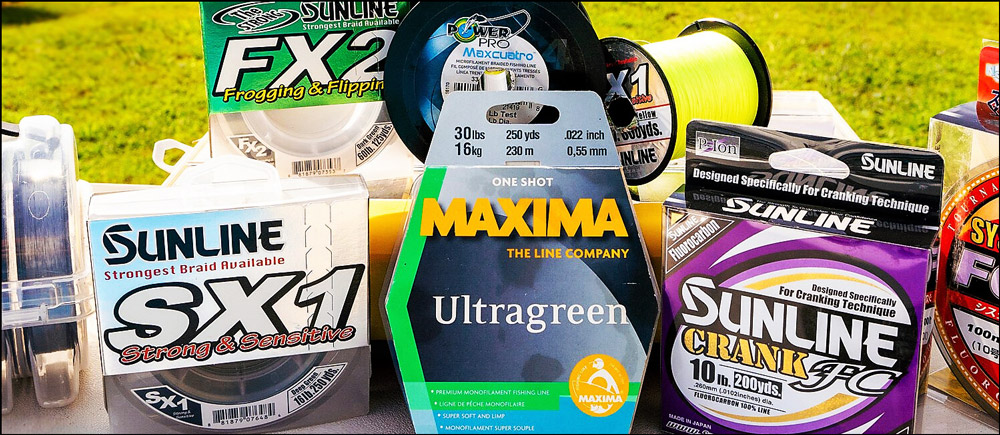
In the quest for the elusive walleye, your choice of fishing line plays a pivotal role. With so many types available, it can be daunting to pick the right one. But worry not! Let’s delve deep and unravel the mysteries of the best fishing lines tailored for walleye trolling. 🎣
Monofilament Lines: The Classic Choice
Monofilament, often dubbed ‘mono’, is like the old reliable friend in the world of fishing lines. Made from a single strand of material, it has been an angler’s favorite for years.
Best Scenarios to Use: In murky waters where visibility isn’t a primary concern.
When using topwater lures or when a little stretch is needed to avoid breaking on sudden strikes.
Braided Lines: The Power Player
Braided lines are the muscle in the fishing line world. Constructed by braiding multiple strands together, they offer exceptional strength and durability.
Advantages:
- No Stretch: Delivers amazing sensitivity, ensuring you feel every nibble.
- Thin Diameter: Despite its strength, it has a thin profile, allowing for longer casts.
- Long-lasting: It doesn’t degrade quickly, making it a good long-term choice.
Tips on Color Selection:
- Moss Green: Great for fishing in places with a lot of vegetation.
- Blue or Gray: Suited for clearer waters as they blend well.
- Bright Colors: Useful if you wish to monitor the line visually.
Fluorocarbon Lines: The Stealth Operative
Known for its near invisibility in water, fluorocarbon is like the undercover agent of fishing lines.
The Invisibility Factor: Composed of a compound similar to water in terms of light reflection, fluorocarbon barely shows up underwater. This stealth can significantly boost your catch rates, especially in clear waters where walleye might be line-shy.
Best Conditions to Deploy:
- Clear Water Environments: Its invisibility makes it a prime choice in crystal clear waters.
- Deep Trolling: Given its tendency to sink, it’s perfect when you’re targeting walleyes lurking in the deeper realms.
- As a Leader: When combined with other lines, fluorocarbon makes for a fantastic, nearly invisible leader.
🔶 With this trio of lines at your disposal, you’re armed to face varied trolling scenarios. Remember, the best line isn’t just about strength or invisibility, but about aptly matching your line to the walleye’s environment and behavior. Ready to reel them in? 🐟
Important Line Specifications for Walleye Trolling
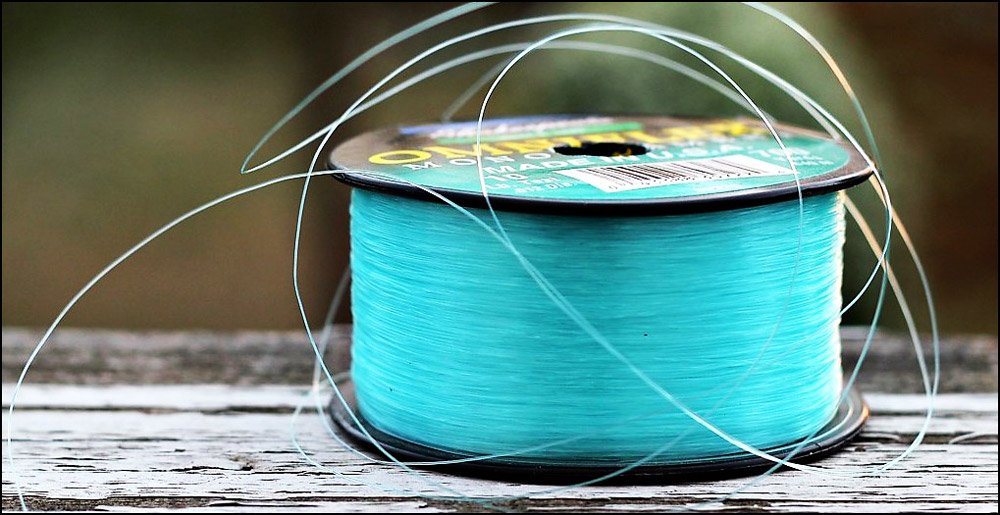
In this section, let’s dissect the important specs of fishing lines and see how they contribute to walleye trolling success. 🎣🔍
Line Strength: The Battle Armor
The strength of a fishing line, often termed as pound-test, indicates the maximum weight the line can hold without snapping. It’s your line’s battle armor against the might of the walleye.
Understanding Pound-Test:
- Lighter Lines (8-10 lbs): Suitable for smaller walleyes in areas free of heavy cover or snags.
- Heavier Lines (12-20 lbs): Ideal when targeting larger walleye or fishing in areas with lots of underwater structures that could break a lighter line.
🔑 Pro Tip: Always ensure your line’s strength is compatible with your reel’s capacity to maintain balance in your setup.
Line Diameter: Diving Deep & Dancing Lures
The thickness of your fishing line, or its diameter, can significantly influence its behavior underwater.
Diameter Impacts:
- Diving Depth: Thinner lines have less drag, allowing lures to reach greater depths.
- Lure Action: A thinner line gives lures more freedom to move, making them appear more lifelike.
📌 Remember: While thinner lines offer depth and action advantages, they may be more susceptible to damage, so always inspect your line regularly.
Stretch Factor: Feeling the Nibble
Stretch in a fishing line can be both a blessing and a challenge. It’s the tussle between sensitivity and elasticity.
Understanding Stretch:
- High Stretch: Offers a buffer, preventing line snaps on sudden strikes but may reduce sensitivity.
- Low Stretch: Provides instant feedback, ensuring you feel even the slightest nibble but requires careful handling to prevent breakages.
🥇 Goldilocks Principle: For walleye trolling, a balance between sensitivity and elasticity is optimal. Depending on the fishing environment, adjust your choice between monofilament (higher stretch) and braided or fluorocarbon lines (lower stretch).
Line Visibility: The Art of Deception
For a predator as sharp-eyed as the walleye, line visibility can make or break the game.
Visibility Factors:
- Water Clarity: In clearer waters, low-visibility lines (like fluorocarbon) can be more effective.
- Light Conditions: During low light (dawn/dusk), walleyes capitalize on their superior vision. Using a line they can’t easily detect can boost bite rates.
🌟 Star Strategy: For heightened success, consider the walleye’s perspective. Position your line in a way that it remains in the walleye’s blind spot as much as possible.
🔶 Equipped with knowledge on these specifications, you’re not just casting a line—you’re strategizing, ensuring every troll is a step closer to landing that prize walleye. 🚤🐟
Expert Tips on Maximizing Line Efficiency
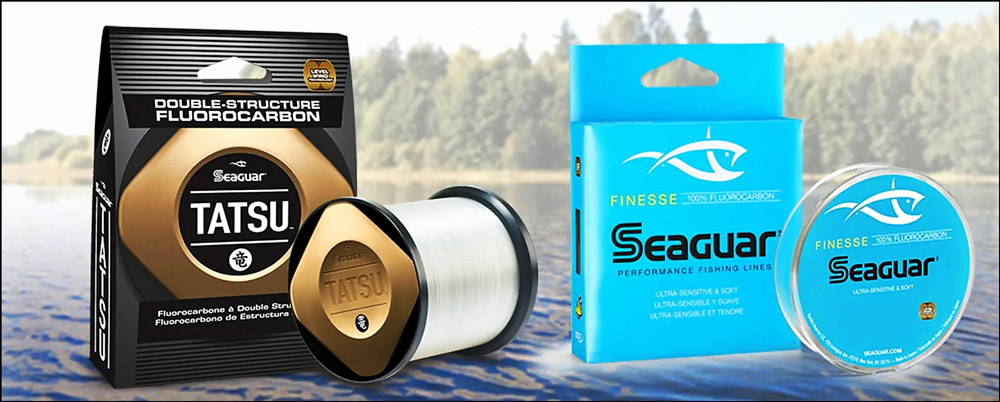
A master angler knows: fishing is not just about the catch, but also about understanding and caring for the gear. 🎣 The longevity and performance of your fishing line are influenced by how well you maintain it and use it. Let’s dive into expert advice on ensuring your line stays in prime condition, maximizing your chances with every cast.
Proper Line Maintenance: The Key to Longevity 🗝️
Like any other tool, your fishing line requires regular maintenance to stay at its best.
Essential Maintenance Tips:
- Regular Cleaning: After every trip, gently clean the line with warm water and a mild detergent. This helps remove dirt and salt which can degrade the line.
- UV Protection: Store your reels in a cool, dark place. Sunlight can weaken monofilament lines especially.
- Avoid Kinks: Always ensure your line is wound properly. Kinks or sharp bends can become weak points, leading to unexpected breaks.
- 📌 Did You Know? A properly maintained line not only lasts longer but also performs better, ensuring smoother casts and fewer snags.
Knot Techniques: Tying the Bond 🪢
The knot you tie can be the difference between a successful catch and a heartbreaking escape.
Key Knots for Walleye Trolling:
- Palomar Knot: Known for its strength and simplicity, it’s perfect for most fishing lines.
- Loop Knot: Allows the lure more freedom of movement, mimicking a more natural swim.
- Improved Clinch Knot: Reliable and easy to tie, this knot works wonders, especially for monofilament lines.
- 📖 Pro Tip: Practice makes perfect. Regularly practice tying your knots. A well-tied knot retains more of the line’s original strength.
Line Change Frequency: Know When to Let Go ⏳
No matter the quality, no fishing line lasts forever. Recognizing when it’s time for a change can save you from losing a catch.
Signs It’s Time:
- Visible Wear: If your line looks faded, frayed, or has visible nicks.
- Memory: When the line retains coil shape off the spool, it’s a sign of too much memory.
- Loss of Strength: If you notice the line snapping more easily than usual, even without much strain.
- 🌟 Golden Rule: It’s better to change your line a bit earlier than necessary rather than risk losing a potential catch due to an old line.
🔶 In fishing, as in life, attention to detail can make all the difference. By investing time in maintaining your line, mastering your knots, and recognizing when it’s time for change, you’re setting yourself up for more consistent, successful walleye trolling experiences. 🐟🌊
Top 5 Fishing Lines for Walleye Trolling – A Curated List 🎣✨
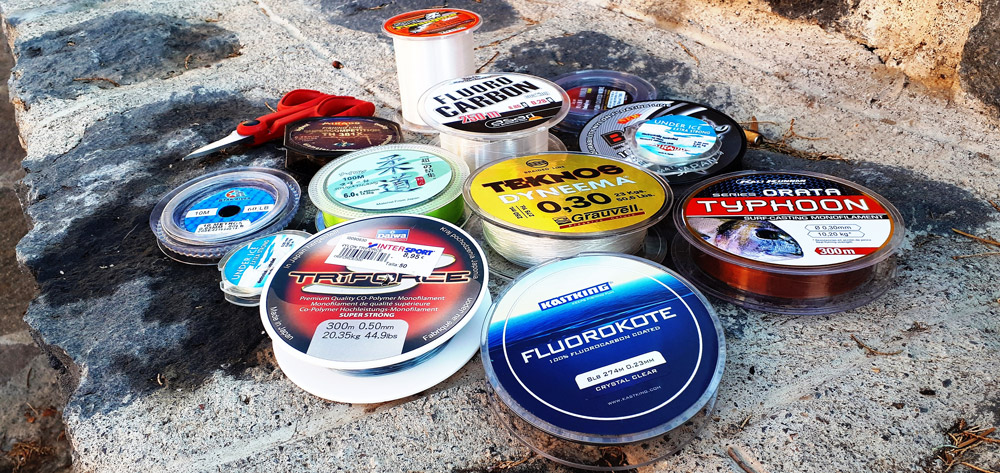
Navigating the vast sea of fishing lines available in the market can be overwhelming. But fret not! We’ve narrowed it down to the crème de la crème, based on rigorous personal testing and invaluable feedback from the angling community. Here’s a countdown to the top 5 fishing lines every walleye enthusiast should consider:
SmoothCast Ultraline 🌊
This line offers a perfect blend of durability and sensitivity. Its medium stretch factor ensures you feel every bite, while also providing the necessary give during a fierce walleye tug-of-war.
Why It’s Great for Walleye:
- High abrasion resistance for trolling in structured waters.
- Smooth casting with minimal memory.
DeepBlue MonoX 🌀
A monofilament line that stands out in its class. Its unique UV-resistant coating ensures longevity, even with regular exposure to the sun.
Why It’s Great for Walleye:
- Crystal clear, making it nearly invisible in most water conditions.
- Perfect stretch balance for both sensitivity and power.
BraidMaster ProFlex 🪢
Braided lines are known for their strength and sensitivity, and ProFlex takes it a notch higher. Made with premium fibers, it ensures maximum strength with a thin diameter.
Why It’s Great for Walleye:
- High sensitivity to detect the subtlest of walleye bites.
- Low diameter ensures lures reach desired depths efficiently.
GhostLine FluoroTech 👻
Fluorocarbon’s invisibility in water is its USP, and FluoroTech maximizes this trait. Plus, it offers an exceptional balance between strength and manageability.
Why It’s Great for Walleye:
- Near-invisibility ensures wary walleyes aren’t spooked.
- Superior knot strength for secure lure attachment.
WalleyeWizard Supreme 🏆
Earning the top spot, this line has been crafted keeping the specific challenges of walleye trolling in mind. It’s the pinnacle of research and angler feedback.
Why It’s Great for Walleye:
- Multi-layered construction for unparalleled strength.
- Optimal stretch for both deep trolling and shallower waters.
- UV and abrasion-resistant, ensuring a long life even in challenging conditions.
🔶 Remember, the best fishing line is not just about brand reputation but about suitability to your specific needs and conditions. Each of these lines brings something unique to the table. Consider the waters you’ll be fishing in, the trolling techniques you’ll employ, and your personal preferences when making a choice. 🐟
Common Mistakes Anglers Make with Walleye Trolling Lines 🎣❌
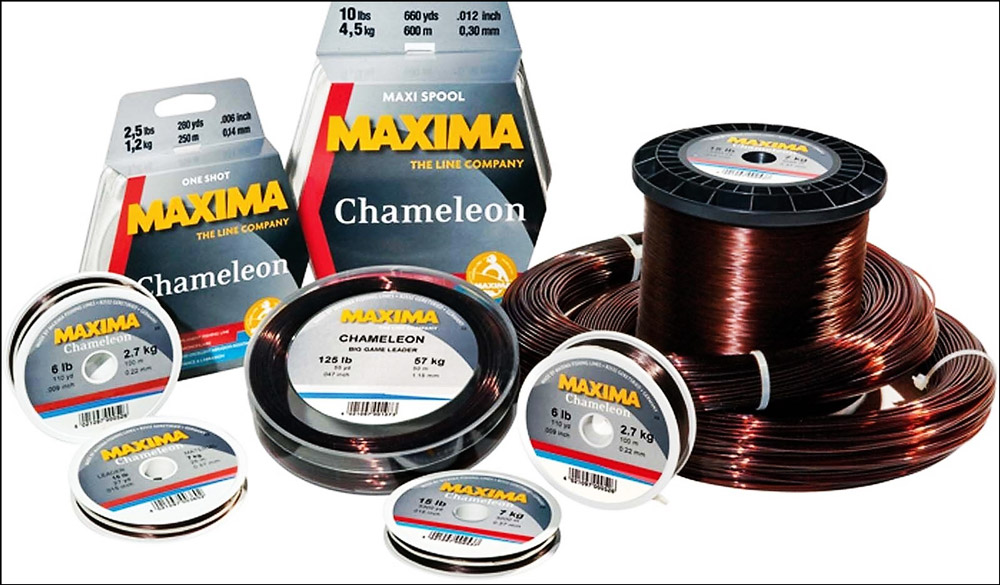
Mistakes happen. But in the world of walleye trolling, they can cost you that prize catch. Understanding and avoiding common pitfalls related to your fishing line is crucial. Let’s unravel the common missteps anglers make, ensuring you don’t fall into the same traps.
Settling for a ‘One Size Fits All’ Approach 🌍🔍
The Pitfall: Many anglers believe that one line type can tackle all fishing scenarios. This often leads to poor results, especially when targeting specific species like walleye.
The Fix:
- Research the water conditions you’re fishing in.
- Understand walleye behavior in those conditions.
- Choose a line that suits both the conditions and the fish’s behavior.
Overlooking Line Maintenance 🧼🚫
The Pitfall: Fishing lines, despite being robust, are not invincible. Neglecting maintenance can lead to weak points, causing unexpected breaks.
The Fix:
- Clean your line after each use.
- Store in a UV-protected, cool place.
- Regularly check for abrasions or kinks.
Incorrect Line Spooling 🌀🤔
The Pitfall: Improperly spooled line can cause a myriad of problems, from tangles to reduced casting distance.
The Fix:
- Use the right spooling technique suited for your reel type.
- Ensure consistent tension when spooling.
- Avoid overfilling the reel.
Neglecting Line Visibility 👀💡
The Pitfall: Walleyes are sharp-eyed predators. Using a line that’s too visible can make them wary, reducing bite rates.
The Fix:
- For clear waters, opt for fluorocarbon lines known for their invisibility.
- In murkier waters, line visibility is less of an issue, allowing more flexibility in choice.
Not Updating Line Frequently Enough ⏰🔄
The Pitfall: An aged line is more prone to breakages, even with minimal strain.
The Fix:
- Regularly check for signs of wear, such as discoloration, nicks, or excessive memory.
- Change lines proactively, rather than after experiencing a failure.
🔶 Fishing, at its core, is about understanding. By understanding the nuances of your gear, especially your fishing line, and avoiding these common missteps, you elevate your angling experience. Remember, every detail counts when you’re out there, battling with the elusive walleye. 🐟🌊
Sustainability Note 🍃🎣
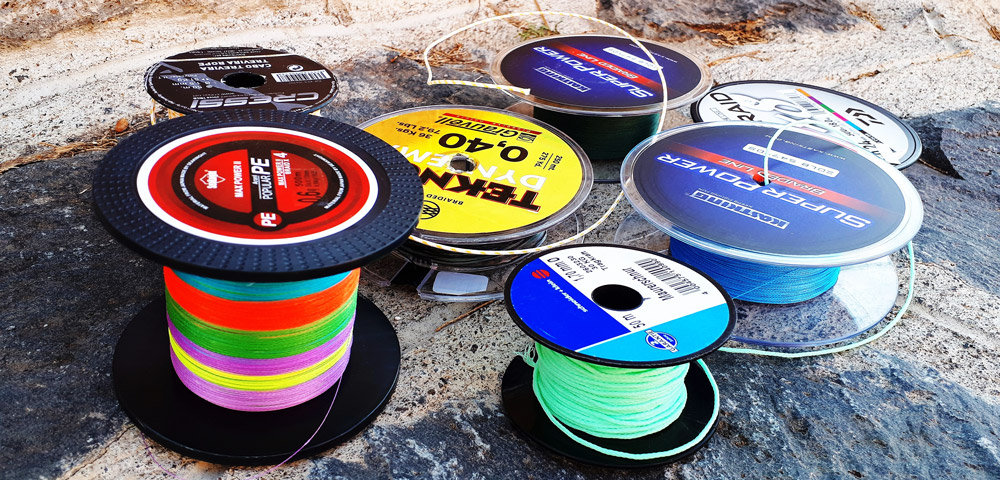
In the midst of the joy and thrill that fishing brings, it’s paramount that we also focus on the future. Sustainable angling ensures that we, and generations after us, can continue to enjoy the serene beauty of fishing. This segment underscores two vital areas: the eco-friendly disposal of fishing lines and the ethical practices that protect our beloved walleye populations.
Line Disposal: Protecting Our Aquatic Ecosystems 🌊♻️
The Concern: Discarded fishing lines pose a severe threat to marine life, leading to entanglement, ingestion hazards, and disruptions in aquatic habitats.
The Solution:
- Proper Disposal Bins: Use designated fishing line disposal bins often found at popular fishing spots.
- DIY Recycling: If a disposal bin isn’t nearby, coil the line, secure with a tie, and take it home. Many tackle shops or local recycling programs accept old lines.
- Awareness: Spread the word! Educate fellow anglers on the dangers of improper line disposal.
🔶 Remember, a discarded fishing line can last up to 600 years in the environment. Every line properly disposed of is a step towards healthier oceans and waterways.
Ethical Angling: Securing Walleye’s Future 🐟❤️
The Concern: Overfishing and improper angling practices can significantly reduce walleye populations, impacting the balance of freshwater ecosystems.
The Solution:
- Catch & Release: If you’ve bagged enough or catch undersized walleyes, practice catch and release. Handle the fish gently and release it back promptly.
- Use Barbless Hooks: These hooks reduce injury to the fish and make the release faster and less stressful.
- Stay Updated: Regulations on walleye fishing might change based on their populations. Always be updated with local guidelines and size limits.
🔶 By adopting ethical angling practices, we ensure that walleye populations remain robust and continue to thrive, offering future anglers the same exhilarating experiences we cherish.
Sustainable fishing is not just about today’s catch. It’s about the future—of the waters, the fish, and the entire ecosystem. As guardians of nature, it’s our responsibility to tread lightly and fish wisely. 🌍🐠
Dive Deeper: Curated Resources & References 📚🌐
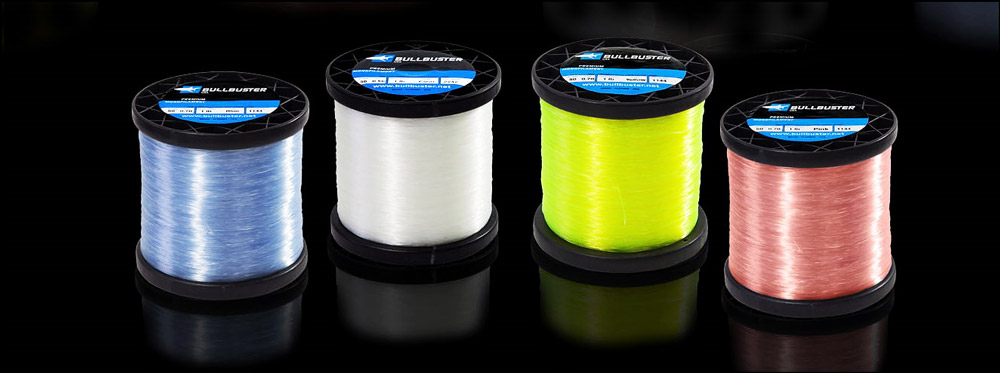
For those looking to delve even deeper into the art and science of walleye trolling, we’ve handpicked some invaluable resources. From classic books that remain timeless in their wisdom to bustling online forums where you can exchange tales and tips with fellow anglers, here’s your treasure trove of extended knowledge.
📖 Enlightening Books:
“Walleye Wisdom” by Al Lindner and Ron Lindner
Synopsis: An angler’s guide to understanding walleye behavior, habitat, and the techniques to catch them.
“The Complete Guide to Walleye Trolling” by Bill Binkelman
Synopsis: Dive into detailed strategies, understand different lures, and grasp the intricacies of trolling for walleye.
“Modern Fishing Line Technology” by Russ E. Larsen
Synopsis: A deep dive into the materials and making of fishing lines, providing insights into the choices behind every type.
💬 Bustling Online Forums:
Walleye Central Forum. An active community dedicated to all things walleye. Discuss techniques, share stories, or get advice on gear.
The Tackle Underground Community. A broader spectrum of fishing topics with a section dedicated to walleye and trolling.
🔍 Additional Online Materials:
“Walleye Trolling Tips & Techniques” – Article on FishingTech.com
Summary: An overview of the best trolling techniques with tech insights to give you an edge.
“Choosing the Perfect Line for Walleye” – Video on FishTactics YouTube Channel
Summary: A visual guide on selecting and using the right fishing line for walleye.
🔶 To conclude, the journey of mastering walleye trolling is both thrilling and educational. With these resources at your fingertips, you’re well on your way to becoming an expert. Never stop learning, and may your fishing tales be ever more exciting! 🎣📘
❓ FAQ
Wrapping Up: The Ultimate Walleye Trolling Experience 🎣🌟
As we cast our line into the vastness of walleye waters, the silent bond between the angler and the catch is often orchestrated by a seemingly simple, yet profoundly important tool: the fishing line. It’s been an illuminating journey dissecting the world of walleye trolling and understanding the nuances of the fishing line that can make or break our endeavors.
🔍 In Retrospect: Selecting the right fishing line is more than just a choice; it’s a strategic decision. From monofilament’s versatility to the stealthy prowess of fluorocarbon, and the strength and sensitivity of braided lines, each type has its own symphony to play in the grand concert of walleye fishing.
🌱 Beyond Just Fishing: Our exploration went beyond just catching fish. We delved into the realms of sustainability, understanding the importance of protecting our aquatic ecosystems and ensuring that the thrill of angling remains alive for generations to come.
📌 Parting Note: To all avid anglers and beginners alike, remember: investing time in comprehending your gear and its implications is as vital as understanding the fish you’re after. It’s not just about the catch, but about the journey, the strategy, and the respect for nature’s offerings.
🔶 So, the next time you’re prepping for a day of walleye trolling, pause. Reflect on your choices, especially the seemingly humble fishing line. Let’s strive for not just good, but the best results, ensuring each fishing trip becomes a memory worth cherishing. 🐟🌊💡
To more tight lines and triumphant catches! 🥂

I live in Tenerife (Canary Islands) for the last 10+ years and share my daily fishing experiences on my website. Many years of personal experience as a fisherman and the vast experience of my friends allow me to write professionally on any fishing topics (from choosing a flashlight and equipment to deep-sea fishing).
All of my advice is based on practical real-world experience and will be useful to both novice anglers and professionals. Read more about the author.
Affiliate Disclosure: FishReeler.org sometimes gets paid for listings, through sponsors or affiliate programs like Amazon, Ebay, Cabelas, Bass Pro Shop, Shimano, Daiwa, Rapala, Renn, Okuma, KastKing, etс. Clicking a link helps keep FishReeler.org free, at no extra cost to you!
About the author: Each article is verified by the fishing expert Sergio Smirnoff. The articles are written by professional and amateur fishermen with 20+ years of fishing experience.
Note: The views and opinions expressed in this article are those of the authors and do not necessarily reflect the official policy or position of any agency. The articles are for informational purposes only, share your opinions in the comments and join the fishing discussions, let's share our fishing experiences together!
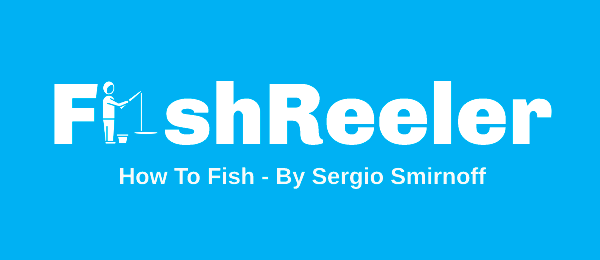
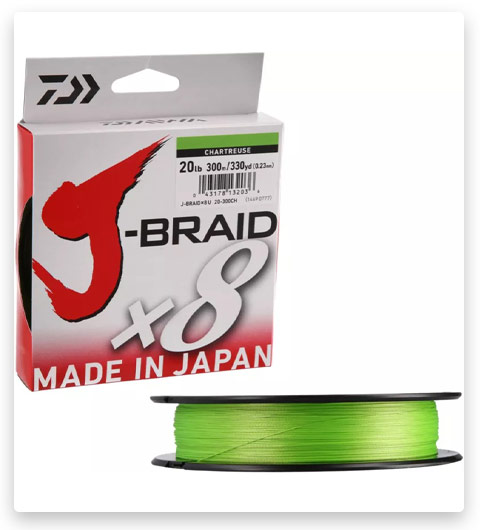
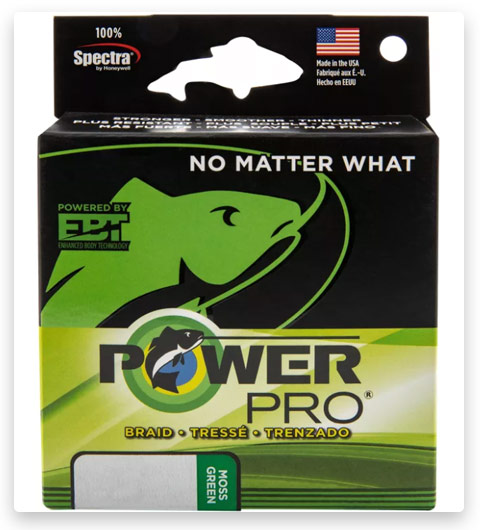
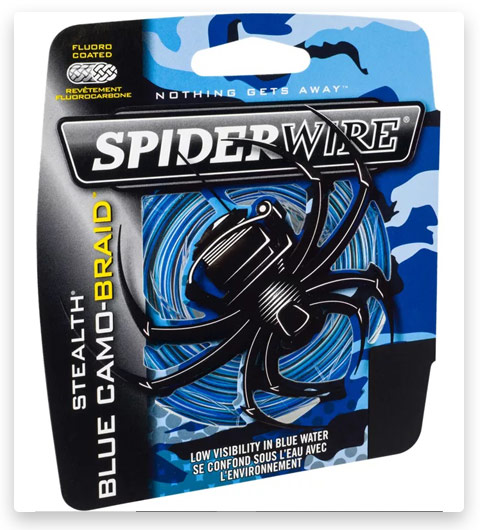
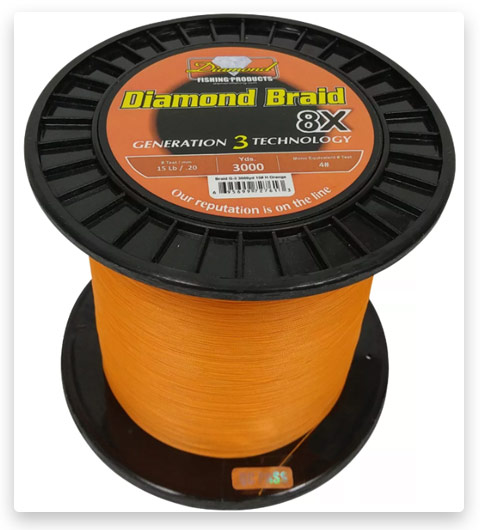
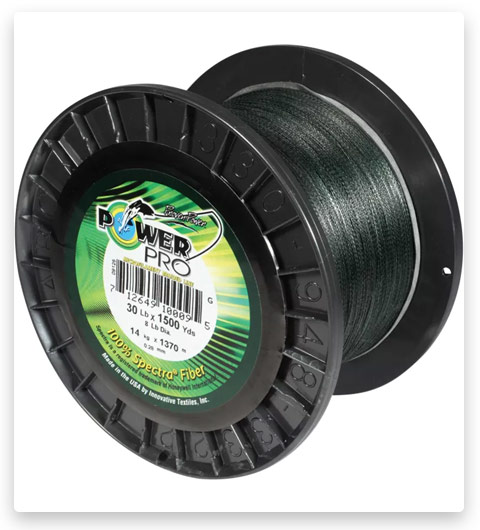
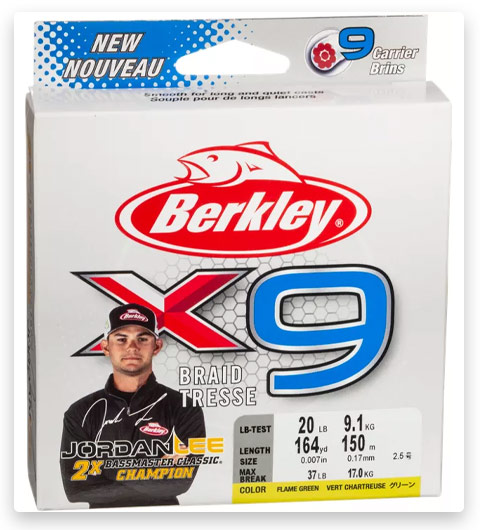
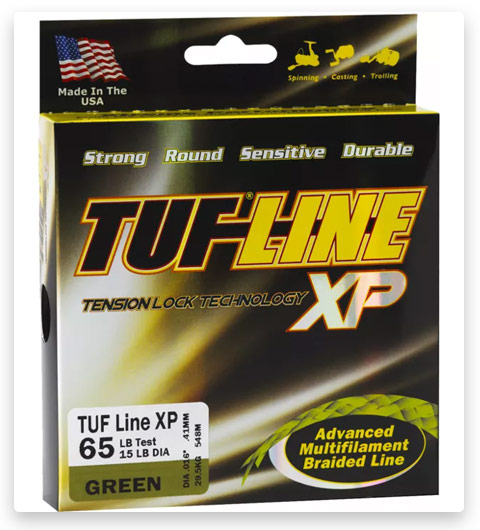
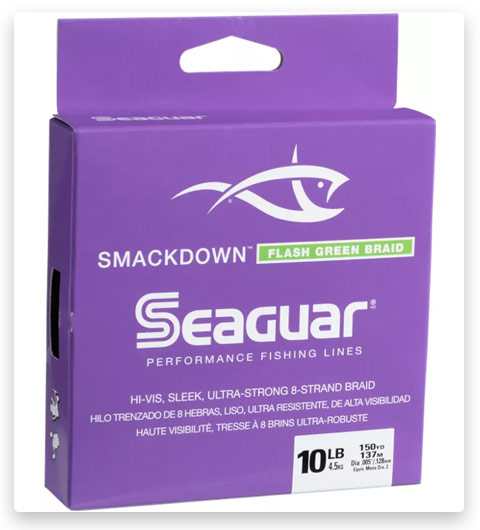
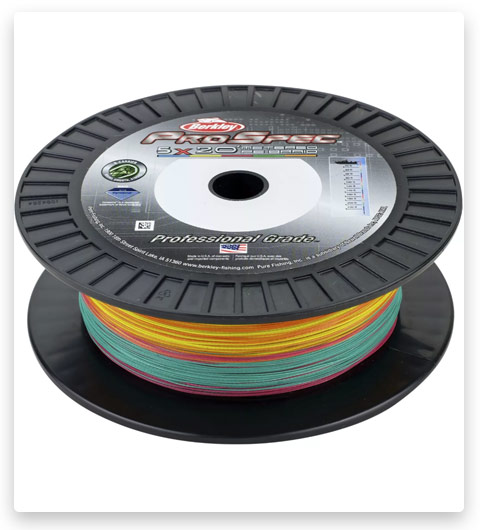
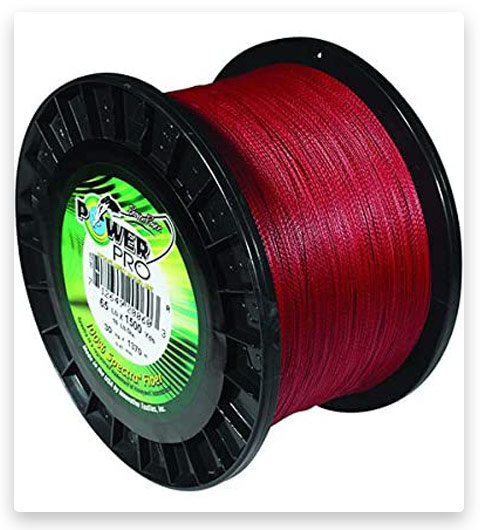
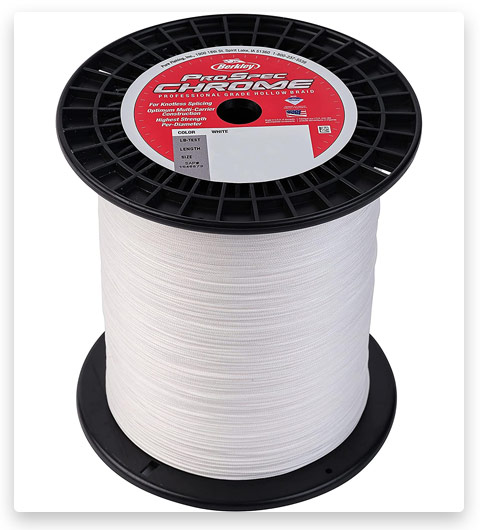
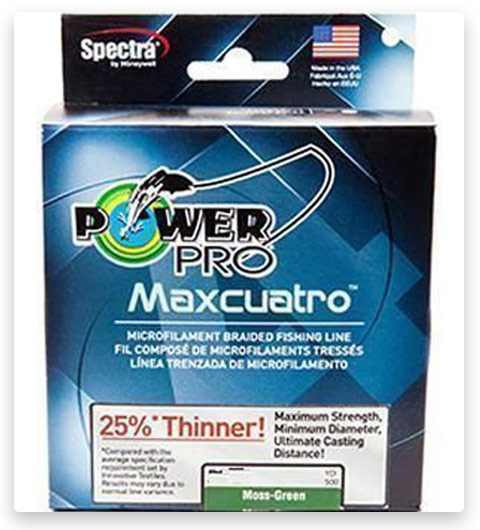
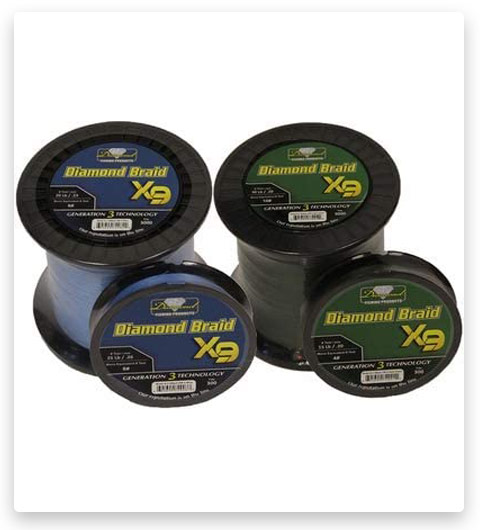
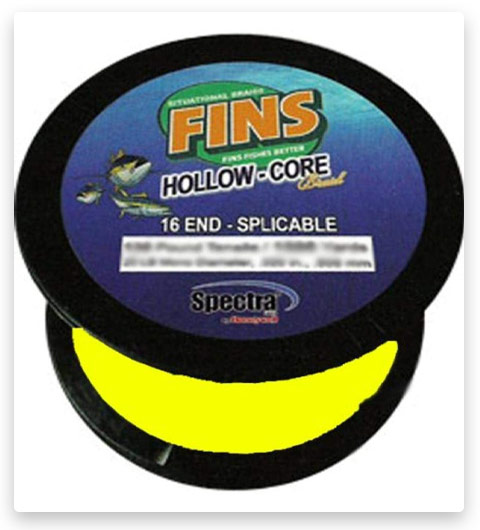
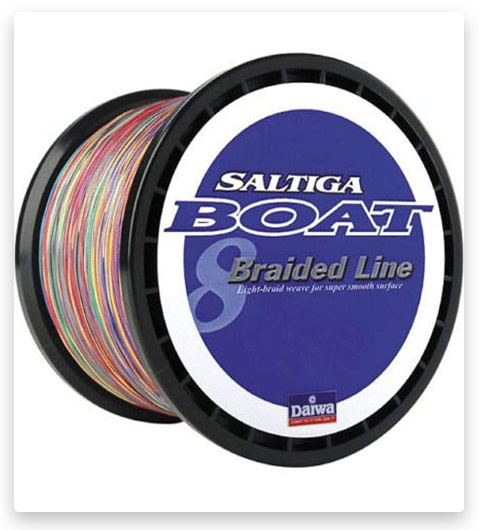
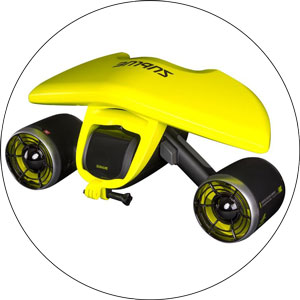
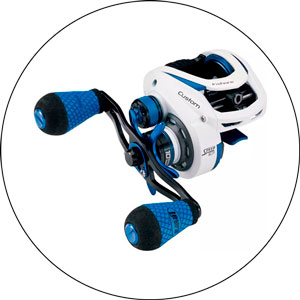
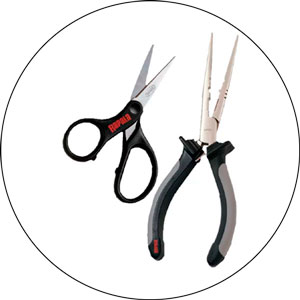
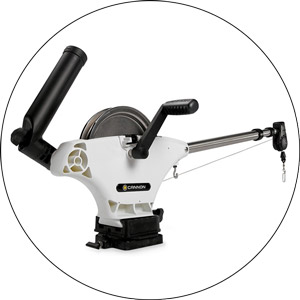
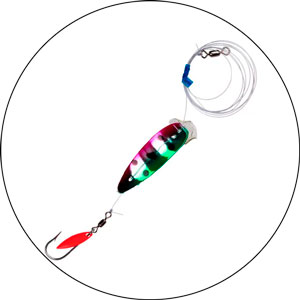
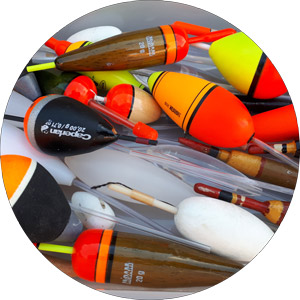
I personally prefer using braids for direct bottom contact fishing, particularly when drifting rivers with jigs or jigging. For other techniques like using light cranks, cast/retrieve jigs with spinners, Lindy rigs, and soft plastic swimbaits, I usually use a leader with my braid. Spiderwire stealth is my go-to braid of choice, and for swimbaits, I usually use 30 lb Spiderwire stealth.
When it comes to jerkbaits, cranks, and trolling, I switch over to mono. I typically use 8 lb Ultragreen or Chameleon for these techniques. For leaders, I have different strengths of 8, 10, and 15 lb of the same mono that I use depending on the fishing conditions.
Overall, using a combination of braids and mono with leaders has proven to be effective for me in catching a variety of fish species. It’s essential to have a good understanding of the different fishing techniques and conditions and choose the appropriate line and leader combination accordingly to maximize your chances of success.
Personally, I enjoy using braids for fishing, but I don’t limit myself to just using braids. Mono line is also a great choice for certain applications, and I find it works well for trolling with crankbaits.
Another line I like to use for deep trolling is lead core. It’s perfect for those situations where you need to get your bait down to the fish.
While braids are versatile and useful for techniques like trolling, live baiting, and jigging, I often find myself adding leaders to the braid when ripping jigs. This gives me better control over the lure and improves my chances of hooking the fish.
There are different fishing situations and techniques that require different types of lines. It’s important to have a good understanding of these various lines and when to use them to maximize your chances of success on the water.
I’ve been an avid fisherman for years, and I’ve fished for various fish species, including Walleye. I’ve read countless fishing books and magazines and watched plenty of episodes of Bob Izumi’s Real Fishing, but I never had much success catching Walleye until I tried out a new, simple rig.
The rig includes a 5.6′ Berkley Lightning Rod, an Abu Garcia Cardinal reel, 6lbs/test Berkley Trilene XT line, a Berkley Power 4″ Power Minnow, and a 1/4 ounce gray jig head-hook.
Previously, I used a 6.6′ medium-action rod with heavier lines and live minnows on fluorescent jigs. However, after switching to this lighter and more sensitive rig, I noticed a significant improvement in my hook-set rate as I could detect even the slightest strike.
Surprisingly, the artificial power minnow worked much better than anything else I’ve ever tried. It just goes to show that sometimes, the simplest and lightest rigs can be the most effective for catching fish.
Fishing with my best friend Andrew has always been fun, but he used to out-fish me by a landslide, even when we used the same gear and rig. It was frustrating, but I decided to pay closer attention to his technique rather than just focusing on his equipment. Once I learned his approach, my catch ratio improved significantly. In fact, during our last outing two days ago, I finally beat him for the first time in 20 years!
As for my fishing technique, it really depends on the location and type of water I’m on. Typically, I search for a current or structure and cast just beside the current into slower water or near the structure. I let the bait fall naturally for about 3 to 5 seconds, allowing it to sink near but not right onto the bottom. Then, I slowly reel in a few rotations, pause briefly, jerk a couple of times, reel a few more rotations, and repeat this process until I either see my bait or feel a strike. Once I feel a strike, I quickly set the hook and get ready for the fight!
Learning from other anglers and adapting to the conditions of the water can significantly improve your chances of catching fish. Keep experimenting and trying new techniques until you find what works best for you.
When it comes to walleye trolling, selecting the right fishing line is crucial. There are several features to consider when choosing a line that will increase your chances of success.
First, it’s important to consider the strength of the line. Walleye can be quite strong and will put up a good fight, so you’ll want a line that can handle the pressure. I typically use a line that is around 10-12 lbs test, but this can vary depending on the size of the fish in the area.
Another important factor is the line’s visibility. Walleyes have excellent eyesight, so you’ll want to choose a line that is difficult for them to detect. I prefer using a low-visibility line like fluorocarbon, which blends in with the water and doesn’t reflect as much light.
When trolling for walleye, it’s also important to choose a line that has minimal stretch. A line with too much stretch can make it difficult to feel the fish biting and can decrease your hook-set ratio. I recommend using a braided line or a monofilament line with low stretch.
Finally, consider the diameter of the line. A thinner line will allow you to cast farther and will provide less drag when trolling, which can be important when fishing in deeper waters. However, a thinner line may also be more prone to breaking, so it’s important to find a balance between diameter and strength.
Overall, selecting the right fishing line for walleye trolling requires a balance between several important features. By considering the strength, visibility, stretch, and diameter of the line, you can increase your chances of success and enjoy a more productive day on the water.
I angler who loves trolling for walleye, I’ve experimented with a variety of fishing lines over the years. Based on my experience, I have found that the best fishing line for walleye trolling is a braided line.
The braided line has several advantages that make it ideal for trolling. First, it has minimal stretch, which allows for better sensitivity and the ability to detect even the slightest bites. This is crucial when fishing for walleye, which can be notoriously finicky and difficult to catch.
In addition to its sensitivity, the braided line is also very strong, which is important when targeting larger walleye. It can handle the pressure of a hard-fighting fish and can also withstand abrasions from underwater obstacles like rocks and logs.
Another advantage of a braided line is its thin diameter, which allows for less resistance when trolling and can help you achieve greater depths. This is especially important when fishing in deeper waters where walleye are known to congregate.
Finally, the braided line is highly visible, which can help you detect line movement and ensure that you don’t miss any bites. Some anglers may prefer a line with low visibility, but in my experience, the benefits of using a braided line far outweigh any potential downsides.
Here is my alternative list. I hope it will be interesting and useful to someone. As an avid walleye angler who loves to troll, I’ve tried out many different fishing lines over the years. Based on my experience, here are some of the best fishing lines for walleye trolling: